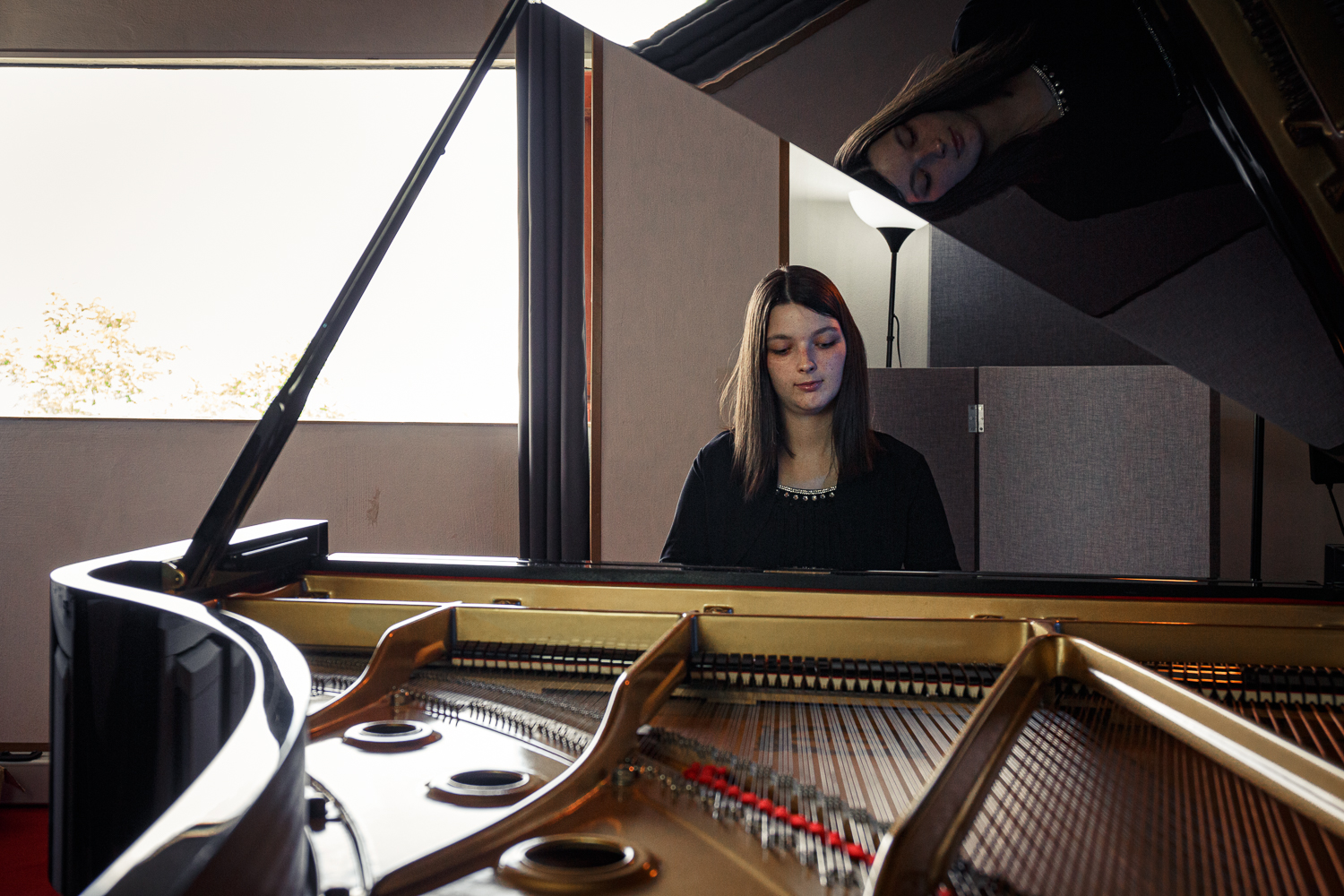About
Dominika Dorincova (*1999) is a young Slovak composer and pianist. She started playing the piano at the age of 10 under the guidance of Mrs. teacher Elena Lendelová. In 2013, at the age of 13, she became an extraordinary student at the Conservatory in Žilina in the field of piano playing under the guidance of Professor Michael Berki. At the age of 13, she began composing her own music. She is a graduate of the Conservatory in Žilina in the field of piano playing in the class of Professor Michael Berki. In the years 2017 - 2019 she studied conducting under the guidance of Professor Štefan Sedlický. Since 2019 she has been studying composition at the same conservatory under the guidance of the Slovak composer Peter Špilák. In June 2019, she became the winner of the "Young Talent of town Považská Bystrica" competition in the category of music/dance. In January 2020, the premiere of her classical composition for piano: Etuda in C minor "Storm" performed by the great Slovak pianist Michael Berki took place in Žilina. In 2018 and 2020, she took part in a music workshop in Cava de Tirreni, Italy, aimed at young composers, where she improved her composing skills while working on her debut album. The workshop was led by two Italian composers: Marco Volino and Ernesto Tortorella. In the summer of 2020, she recorded her debut piano album "Forever in my Heart" in Italy and signed her first recording contract with the Italian music company "Trees Music Studio." The album received favorable reviews at home and abroad /e.g. MainlyPiano.com, the leading music website in the USA, Carmine Padula (Italian film composer), Valentin Bonjour (French composer), Pavol Janíček (Slovak composer), Pietro Vitale (Italian composer and percussionist), and others/ The composition "New Day" from the album "Forever in my Heart" could also be heard on the German radio "neofm" based in Berlin. The album attracted listeners from different countries of the world (Italy, USA, Slovakia, Germany, Greece, Czech Republic, Philippines, Denmark, Croatia, India, Holland, France, Canada, Costa Rica, Poland, Japan and others). In April 2021 she joined the beautiful initiative Servizio IESA ASL TO3 - Centro Esperto Regione Piemonte (Italy) with the composition "Smile", which was added to their YouTube playlist "Una canzone per l'inclusione" The playlist "Una canzone per l'inclusione" was created on the initiative of the IESA ASL TO3 Centro Esperto Regione Piemonte initiative from the idea of collecting published and unpublished songs and video clips on the topic of mental distress, social inclusion and the fight against stigma. During her short career, she has given concerts in cities such as Cava de Tirreni (Italy), Horní Jelení, Králíky (Czech Republic), Žilina, Považská Bystrica (Slovakia).
